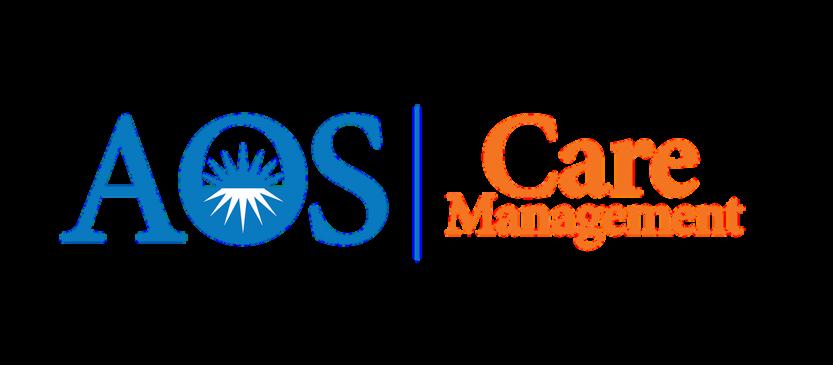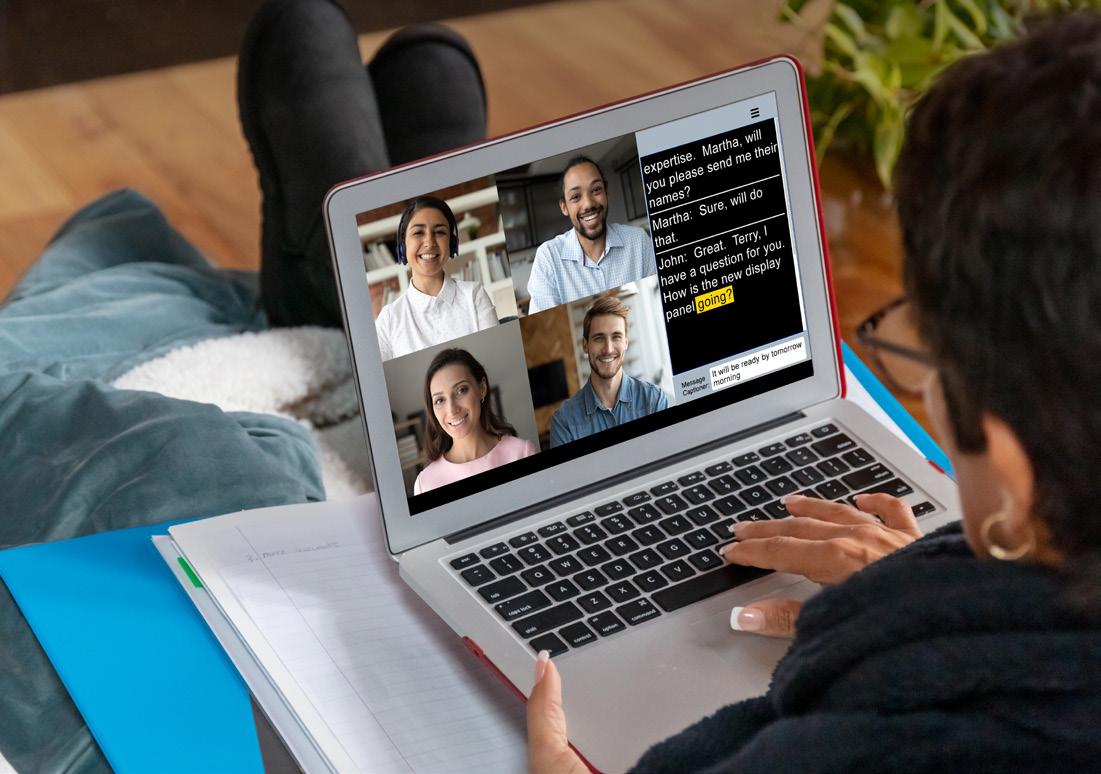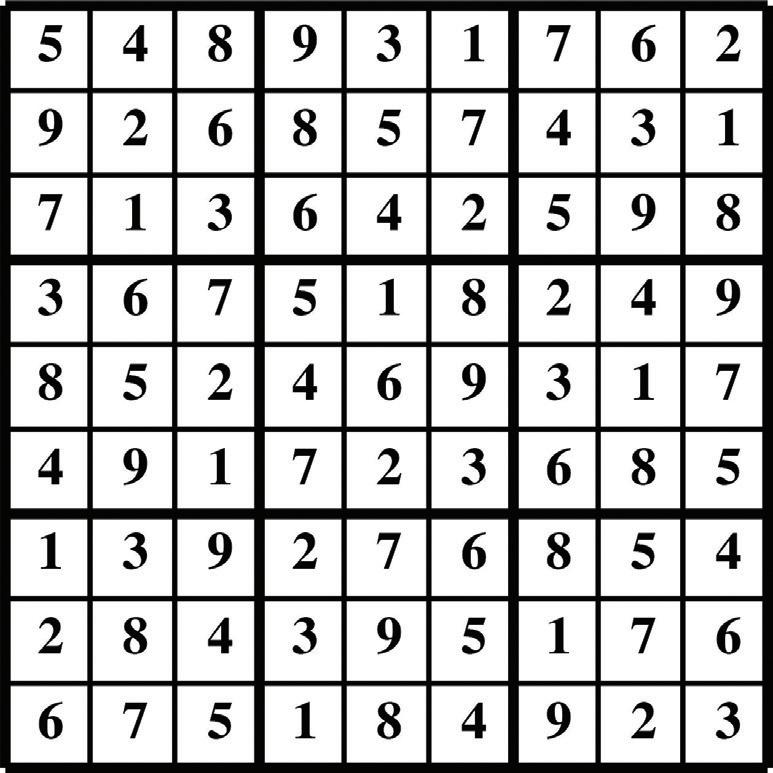J U N E 2 0 2 3
Brain Health Awareness for Aging Well and Thriving in the Second Half
June is Alzheimer’s and Brain Health Awareness month.
According to the Alzheimer’s Association, an estimated 6.7 million Americans are living with Alzheimer’s, and of those 6.7 million, 73% are over the age of 75. Additionally, the risk of dementia increases with age. The Alzheimer’s Association reports that 5% of people between the ages of 5065 live with Alzheimer’s dementia. The numbers increase to 13% for people 75+. Thirty-three percent of people 85 and older have Alzheimer’s dementia.
We noted in last month’s article on Huntington’s disease, dementia is an umbrella term including several forms of dementia including Alzheimer’s disease, vascular dementia, Lewy body dementia, and frontotemporal dementia. It is also possible to have more than one cause at a time, a condition termed mixed dementia. Dementia also shows up as an occasional consequence in other disease processes including Huntington’s disease, traumatic brain injury (TBI), and Parkinson’s disease. For most people living with dementia, the focus is on slowing the progression and increasing the overall quality of life.

continued on page 6
ASK THE EXPERT: COMFORT FOOD
INFOGRAPHIC: FUN PET FACTS
FEATURE: BRAIN HEALTH AWARENESS FOR AGING WELL AND THRIVING IN THE SECOND HALF
THE MIND DIET
EYE HEALTH: OCULAR HYPERTENSION
JUNE 2023 - 1
OutreachNC

OCTOBER
2022 - 2

ture dipped low enough to merit a fleece.
Don’t worry. It was decaf.
us understand brain health and offers insight and suggestions for how to keep our brains healthy as we age.
As the days grow longer and the sunshine more consistent, there is hope in the air. I find myself sitting outside in the evenings, before the mosquitoes devour my ankles, and watching the sun set. I stop every now and then, on a walk with the dogs, and look out over a field or pasture and stand in awe of something as simple as the slight movement on a pine tree in the spring air. In many ways, there is an awakening in May, a transition to summer that we feel in every area of life. We’re out more often with friends. We’re taking our meals to the back porch. We’re opening windows, sweeping away the pollen and putting ice in our drinks as the afternoon rolls around. Sweater weather is officially gone.
Summer is here, which means we’re entitled to copious amounts of ice cream and lemonade. We’ll commence with porch sitting, storytelling, fly swatting, mosquito slapping and grilling. So much grilling.
Well, it’s official: fall is here. I had my first pumpkin-spiced latte just two days ago, as the evening temperature dipped low enough to merit a fleece.
Don’t worry. It was decaf.
This month we begin by honoring the fathers in our lives with a quote from Margaret Truman:
October is a gentle month. There are constant reminders of change. we are lucky, toward each other. We have lingering conversations the flames flicker. Smoke dances around us in a circle. We zip our
In Ask the Expert, Amy Natt answers a reader’s question regarding her mom’s cooking and eating habits. Natt explores how our relationship with food changes over time and offers concrete suggestions for helping loved ones eat the best, healthiest food for their stage in life.
In this month’s feature, we’re starting an important conversation: care community for ourselves or a loved one? Fox Hollow Senior Robin Hutchings offers inside perspective for making this decision.

October is a gentle month. There are constant reminders of change. We turn inward, toward warmth and we are lucky, toward each other. We have lingering conversations over tea. We burn fires and sit in silence the flames flicker. Smoke dances around us in a circle. We zip our jackets and consider hats.
In Ask the Expert, Amy Natt answers a reader’s question regarding away without any estate planning. Without a will or access to important
At ONC, we love a little gardening for the May issue. This year, we explore the idea of returning to our roots, literally, in a time when costs are rising and our waistlines expanding. Keith Wells, who just moved to the Sandhills in his own retirement, helps us dig into home gardening and, specifically, herbs and spices. If you’ve ever wanted to eat healthier, fresher, homecooked food, this article is for you.
In this month’s feature, we’re starting an important conversation: how do we choose the proper senior care community for ourselves or a loved one? Fox Hollow Senior Living’s Sales and Marketing Director, Robin Hutchings offers inside perspective for making this decision.
It’s only when you grow up and step back from him — or leave him for your own home — it’s only then that you can measure his greatness and fully appreciate it.
Dr. Daniel Messner, of Carolina Eye Associates, explains Ocular Hypertension, how it’s different from glaucoma and how we can treat it. You’ll want to read this for peace of mind and actionable steps toward keeping your eyes in great shape.
Physical therapist Dr. Sara Morrison of Total Body Therapy and potential diagnostic tools used in physical therapy to help diagnose these tools differ from what other doctor’s offices may offer.
In Ask the Expert, Amy Natt answers a reader’s question regarding what to do when a loved one passes away without any estate planning. Without a will or access to important accounts, what does a family do?
In this month’s Ask the Expert, Ashley Seace responds to a reader’s question about deciding on care for a loved one.
And we’ve got recipes for you to use those herbs and spices in your cooking, whether you grew them or bought them. In the end, good food brings us together, nourishes our bodies and reminds us that what we need is below us, above us and all around us.
Truman’s words highlight the power of perspective in appreciating what our parents do for us, the role they play and the space they fill. We honor the greatness of the fathers in our lives, the ones we were born to and the ones many of us are lucky to choose.
Finally, we end on a high note and celebrate some of the best relationships in our lives: our pets! Learn who owns what in America and across the world and how pet ownership impacts our health: physical and mental.
I’m going to agree with Nathaniel Hawthorne this month, who wrote:











Here’s to happy, healthy brains, bodies and relationships for the summer and beyond….
I’m going to agree with Nathaniel Hawthorne this month, who wrote: I cannot endure to waste anything so precious as autumnal sunshine spent almost all the daylight hours in the open air. Here’s to enjoying the October sunshine, falling leaves and daylight



Physical therapist Dr. Sara Morrison of Total Body Therapy and Wellness helps readers understand potential diagnostic tools used in physical therapy to help diagnose and treat pain. You’ll want to learn how these tools differ from what other doctor’s offices may offer.
We must agree with the words of Aristotle:
I cannot endure to waste anything so precious as autumnal sunshine by staying in the house. So I have spent almost all the daylight hours in the open air.
Here’s to enjoying the October sunshine, falling leaves and daylight hours.
Happy digging,
Our June feature is a fascinating and illuminating interview with Dr. Andrea Bozoki. Bozoki is the Division Chief for Memory and Cognitive Disorders in the Department of Neurology at UNC Chapel Hill. She also serves as the Outreach and Engagement Core Leader for the Duke-UNC Alzheimer’s Disease Research Center. Dr. Bozoki helps
facebook.com/agingoutreach/ instagram.com/agingoutreachservices/
facebook.com/agingoutreach/
facebook.com/agingoutreach/ instagram.com/agingoutreachservices/

2 - JUNE 2023
LETTER FROM
EDITOR
THE
Amy Phariss, Editor-in-Chief , OutreachNC | editor@outreachnc.com We are passionate about helping older adults navigate the many challenges 910.692.0683 AOSNC.com e in Aging Well Experts Age the Way You Choose
LETTER FROM THE EDITOR
instagram.com/agingoutreachservices/ Amy Phariss, Editor-in-Chief , OutreachNC | editor@outreachnc.com AOSNC.com e in Aging Well Experts
Amy Phariss, Editor-in-Chief, OutreachNC | editor@outreachnc.com
LETTER FROM THE EDITOR
2022 - 2
MAY
LETTER FROM THE EDITOR
Amy Phariss, Editor-in-Chief
,
| editor@outreachnc.com
In all things of nature there is something of the marvelous.
Age the Way You Choose. e in Aging Well Experts 910.692.0683 | www.AOSNC.com We understand family caregivers deserve a break! We can refer carefully screened private-duty caregivers who will work according to your needs and schedule. AOS At Home Care is the first accredited Caregiver Registry in North Carolina
ASK THE EXPERT: COMFORT
Question: My mom, who used to pride herself on her cooking, doesn’t want to cook anymore. My dad is complaining about spending so much money eating out, and we’re worried about their health. All this packaged and pre-made food isn’t healthy. Still, I feel like my mom spent her life cooking and shouldn’t have to keep doing it if she’s tired. What other options do you suggest?
Answer: The experience of food can change over our lifetime. Many of us go through periods where we just don’t feel up to cooking. Has your mom indicated why she doesn’t want to cook anymore? Is it just the cooking, or the process of grocery shopping as well? She is certainly entitled to a break, but it might help to identify the root cause of her change in pattern. If she simply is tired of cooking, there are other options. Cooking for two can be very different than the days of cooking for a family; sometimes you just run out of ideas, or it becomes a mundane task. Other times something else is going on, like difficulty remembering the steps, trouble standing or concentrating for long periods of time, or a change in mood or appetite that might signal an underlying cause that should be addressed. Eating out can become costly and requires nighttime driving, which may become an issue at some point and you’re right, pre-packaged food might not be the healthiest option. Here are some options that you might consider:
1. Come up with a list of likes and dislikes for both of your parents. Note any food allergies or tolerance issues. Determine weekly staples for shopping trips. This will help whoever may be helping with meals in the future.
2. Identify when they eat the largest meal of the day, how many meals they eat each day and when they prefer a hot meal. This will help determine a routine and how to best support that with supplemental services.
3. Offer to help her with grocery shopping and meal prep. If you can do this once a week, that would provide for some
homecooked options for a portion of the week. They could simply reheat or do the final prep work and it may not seem so overwhelming. Make sure to label and date everything, to avoid any confusion.
4. Consider setting up an online shopping service. There are several options for this, depending on which store they prefer. You can help set this up and assist in weekly shopping, over the phone. You can set up the order on your end, coordinate with them, and arrange for pick up or delivery.
5. Meal delivery services are also an option. Several companies who offer catering, also offer meal plans that can be delivered to the home each week. Some restaurants offer this as well. A quick internet search and a few calls can help you identify options in their area.
6. If your mom has no interest in cooking, and you are not in the area to assist, consider hiring a companion or caregiver to come in a few times a week to assist with grocery shopping and cooking.
7. If you are going to go with pre-prepped foods, look for restaurants or markets that offer healthier options with packaged to go meals. Many health foods stores that have lunch counters, offer premade foods. These would be a step up from just purchasing frozen meals.
8. Look for congregate meal sites or lunch/dinner clubs. The local senior center or area churches may have monthly options that would provide a hot meal and socialization.
It may be a process to establish a new routine and meal options that are appealing to them. The great thing is that we do have many resources they can potentially tap into. Through family, friends, services and possibly hiring a companion to help at home, you can hopefully ease her burden and keep the budget in line for your dad, minimizing the number of times they eat out each week.
JUNE 2023 - 3
FOOD
|
Ashley Seace, AOS Care Manager
ashleys@aoscaremanagement.com
In June, ONC loves celebrating the pets in our lives. Our pets are family, offering love, support, humor and a solid reason to get up, get going and get outside! Here are some interesting facts about pet ownership in the US and worldwide – and some research as to why pets are so good for our overall health.
66% of US households own a pet.
69 million Americans have a dog, and 45 million have a cat.

The most popular pet in the US is a dog.
Wyoming is the state with the highest number of pet owners. 72% of people in Wyoming own at least one pet.
The U.K. has the largest reptile pet population in the world.
In France, cats are twice as common as household pets than dogs.
5 million Americans have a snake as their pet.
Fewer than half the households in South Dakota, New Jersey, Massachusetts and Illinois own pets.
Spain, at 13%, has the lowest cat pet population in Europe.
4 - JUNE 2023
47% of households in Thailand own a dog, compared with 16% in Hong Kong.
From
2010

Cats are the most popular pet in New Zealand, with roughly 41% of households owning at least one.
2020, the pet industry grew 114% in the United States.
–
American pet owners spend the most, globally, on pet food and treats ($42 billion in 2020).
According to research from the University of Alabama, pet ownership is linked to higher levels of cognition and larger brain structure. These effects were greatest in dog owners.
Regularly walking or playing with a pet can actually decrease blood pressure, cortisol levels and triglyceride levels in their human owners.
Research finds that pet ownership is especially beneficial for verbal memory such as memorization of word lists.
For older adults, regular outdoor activities with a pet can improve cognitive function.
Pet ownership also positively affects mental health by decreasing stress, increasing socialization and physical activity and providing unconditional love and support.
JUNE 2023 - 5
continued from page 1
Brain Health Awareness for Aging Well and Thriving in the Second Half
If this sounds like a lot to understand, you’re not alone. The various types of dementia can feel overwhelming. Then, there are the issues of diagnosis, treatment and access to resources. It can feel like wading through mud. Many family members, loved ones and care partners can feel crushed by the sheer amount of information they must learn, decipher and apply to help their loved ones.
With this in mind, OutreachNC is grateful to have access to some of the nation’s top researchers and experts in brain health including Dr. Andrea Bozoki.
by Amy Phariss
Dr. Bozoki is the Division Chief for Memory and Cognitive Disorders at UNC School of Medicine. Dr. Bozoki is also a professor of Memory and Cognitive Disorders and the Outreach and Engagement Core Co-Leader at Duke-UNC’s Alzheimer’s Disease Research Center. Dr. Bozoki helps ONC readers understand the issues related to memory and cognitive disorders, including Alzheimer’s disease. She explains how to help our loved ones, advocate for ourselves and make sustainable changes today for better brain health tomorrow.
6 - JUNE 2023
ONC: What is the biggest myth about memory and cognitive disorders:
Dr. Andrea Bozoki: The myth that everyone dements if they get old enough. That’s just not true.
What we all get is something called normal cognitive aging. It’s totally a thing and happens to everyone. It’s universal.
You start having cognitive aging in your 30s. Decade by decade, if you test people, they consistently become a little worse and a little worse in certain areas: multitasking, proper noun finding (pulling up names), prospective memory (remembering to remember – going into a room and forgetting why). This is very real. Nothing that we have found will prevent it, but just like wrinkles and grey hair, it happens at different times with different people. Some people notice in their 40s and 50s, and others are untouched or minimally touched by it in their 70s. Plenty of people don’t start getting grey hair until their 60s.
But, nothing about cognitive aging is dementia.
All of what I’ve just described (multi-tasking, proper nouns) are annoyances but are not the same as having dementia. These annoyances don’t impair your day-to-day function, whereas abnormal cognitive aging is the road to developing dementia. When people have abnormal cognitive aging or Mild Cognitive Impairment (a frequent precursor of Alzheimer’s disease) they may forget what they said or repeat. That’s not typical of normal aging.
ONC: How can we minimize cognitive aging or decrease the impact it has on our lives?
AB: Exercise, diet, sleep and paying attention to hearing. These can slow cognitive aging.
ONC: If you could choose one place to start to improve brain health and memory, what would it be? What is the most important change a person can make to make solid improvement?
AB: Daily exercise, at least 30 minutes, of which 10-15 minutes should be “moderately vigorous” – meaning you break a sweat and can keep up a conversation while doing it.
ONC: Can stress and dementia have similar symptoms?
AB: They can but tend to look a little different. The kind of forgetting caused by stress is usually more frontally based in the brain, meaning that the problem is poor sustained attention, poor multitasking, decreased ability to organize information coming in – that looks different on cognitive testing than someone who has a problem with their video camera that records things all day long, the hippocampus. If your hippocampus is broken, you can’t pull in. Your ability to multitask may be just fine, but it never gets from in-the-moment to longterm memory storage.
ONC: What is the role of mental health in brain health?
AB: Huge.
When I see somebody, I’m always asking myself: what are the improvable elements and contributors to this person’s cognitive impairment. It’s rare that someone has just pure Alzheimer’s and nothing else. There are always these lifestyle factors.
If you exercise more, eat a different way (The Mind Diet – it’s the most well-studied at this point, for Alzheimer’s), etc. If someone has depression or anxiety, at a minimum, it’s giving them situation memory block. There is an entity called pseudodementia. It looks like Alzheimer’s disease but might be depression alone.
ONC: What would you say to a spouse or loved one who is feeling frustrated in caring for someone living with dementia?
AB: One piece of advice for caregivers: choose your battles. Not everything is worth pushing back on. There are lots of battles caregivers sometimes have with demented family members. I say: this is not the hill to die on. Daily bathing is a big thing. Just let it go. Use a washcloth if you absolutely feel the need but stop fighting that fight so hard.
The battles worth having are the ones that lead to significant quality of life or lead to slowing the progression of the disease.
JUNE 2023 - 7
Hearing loss is an example of a battle worth having for people who are not yet demented. Untreated hearing loss is a significant driver for developing dementia.
The Biden administration has finally, after huge pushback from insurance companies and makers of hearing aids, authorized over-the-counter hearing aids. You no longer need to have a prescription, and prices are finally starting to drop. The financial barrier for hearing aids has been enormous.
I normally recommend patients wear hearing aids all day, every day unless you’re in a very loud environment (then wear earplugs) but wear hearing aids the rest of the time. So, this is an example of when a loved one shouldn’t find ways to accommodate someone. Find a way to get the loved one the hearing aids they need.
Sleep regulation is another battle worth having. Sleep is so important to the brain. If someone is only sleeping 5 or 6 hours a night, that’s a treatable risk factor. Getting them up to 7 hours a night is possible and very important. Getting a CPAP device is equally important for someone who has sleep apnea, which can affect quality of sleep.
ONC: Many forms of dementia don’t yet have great treatment options. Can you describe any recent research studies addressing new treatment options?
AB: Because of the last decade of research studies and the thousands of individuals living with Alzheimer’s disease who were gracious enough to volunteer their time, we are about to have diseasemodifying treatments available for early/mild
Alzheimer’s disease for the first time. These drugs will not be without risks, and are definitely not a cure, but there will finally be something I can offer to patients that can slow down their disease progression. That’s a huge step forward.
ONC: Do you recommend patients participate in these studies? What would you say to a patient interested in exploring clinical research related to their diagnosis?
AB: Yes, I do. Clinical trials look at new drugs or vaccines that may help treat or prevent disease, look at ways of detecting or finding out more about a disease, and monitor new drugs or evaluate new combinations of established treatments. The main goal of clinical trials is to see if these new drugs or technologies are safe and work to cure or treat the illness being studied.
Many people dealing with Alzheimer’s disease want to do something to help find a better treatment or a cure. They want to help others. One way to help is to participate in research. Not only does research help future generations, but it may help those participating in the study as well. Study participants may receive new medications or free check-ups as a part of their participation.
At the NC Registry for Brain Health, we believe that diverse perspectives are critical to achieving health equity — meaning that all communities have a fair and just opportunity for early diagnosis and access to risk reduction and quality care. When you join the Registry, you will also receive regular updates including quarterly newsletters filled with brain health information, research discoveries, events, and resources to help you and your loved ones. Any North Carolinian over the age of 18, with or without a memory disorder, is welcome to join the Registry. To learn more and join, please visit: ncbrainhealth. org; you can also contact the registry staff at 919.613.8633 or NCBrainHealth@duke.edu
We are grateful to Dr. Bozoki for her insight, perspective and education on the topic of brain health. We are also grateful to Latorius Adams, who always keeps ONC readers connected to top experts and information in fields that matter to aging well. Outreach begins with information and connection, and Ms. Adams and Dr. Bozoki’s contributions are greatly appreciated.
8 - JUNE 2023
KEEP YOUR MIND HEALTHY
Dr. Bozoki mentions the MIND Diet as a great option for improving brain health. We obviously wondered: what is the MIND Diet? Is the MIND diet accessible for the average American or a complicated, expensive eating plan? Here’s what we found.

The MIND Diet stands for: MediterraneanDASH Diet Intervention for Neurogenerative Delay.
Whew. It’s a mouthful (we know).
According to the Harvard T.H. Chan School of Public Health, the MIND Diet “targets the health of the aging brain.” The MIND Diet is based on research from the Rush Memory and Aging Project (MAP), which followed a group of older adults for up to 10 years. These adults did not have dementia when signing up for the study. Researchers analyzed their meals to determine which foods and serving sizes were associated with protection from dementia and cognitive delay.
MIND the diet
by Amy Phariss
With this information, the researchers came up with a list of 15 dietary components that were put into one of two categories: “brain healthy” or “unhealthy.” The foods are a combination of foods found in the Mediterranean and the DASH diets, and researchers found that the combination of foods (rather than following just one of the diets) was particularly helpful in preventing dementia and promoting brain health. According to researchers, “Participants with the highest MIND diet scores had a significantly slower rate of cognitive decline compared with those with the lowest scores.”
So, which foods are included in the MIND diet?
The Diet recommends specific “brain healthy” foods to include in your diet. These foods include:
• 3+ servings each day of whole grains
• 1+ servings each day of vegetables (other than leafy greens)
• 6+ servings a week of leafy green vegetables
• 5+ servings a week of nuts
• 4+ meals a week of beans
• 2+ servings a week of berries
• 2+ meals a week of poultry
• 1+ meals a week of fish
• Fats primarily from olive oil
JUNE 2023 - 9
Unhealthy foods are to be limited in the MIND Diet including:
• Less than 5 servings each week of pastries and/or sweets
• Less than 5 servings a week of red meat (beef, lamb, pork and products made from these meats)
• Less than 1 serving a week of cheese and fried foods
No one likes to be in pain. In fact, I have spent the past 20+ years helping people get out of pain. The most common question I hear is “How can I get this pain to go away?” The answer to this is simple. We first need to know Why you are hurting. Then we can figure out how to stop the pain. So, why are you hurting? There are many different reasons for pain to occur in our bodies. Pain can be due to a problem in the Muscles, Joints, Tendons, Organs or Nerves. It can also be due to Medication, Psychological reasons, or Nutrition
• Less than 1 tablespoon a day of butter or margarine
Finally, there are a few key points to remember when developing an eating plan based on the MIND Diet. First, it’s not a rigid diet with specific daily meals. Instead, based on your likes, budget and lifestyle, you can create a weekly diet that works best for you. Add in the berries you like best. Eat a fish you can afford and have access to. Swap out almonds with walnuts when you get bored. It’s not a one-sizefits all diet but more of a way to view your overall eating habits so you can include the best foods for your brain and limit foods that aren’t doing you any cognitive favors.
Many health care professionals diagnose pain by Special Tests. During these tests, your practitioner will use their hands to push, pull and twist the areas that are causing you pain. These tests are very useful to find what structure is causing you pain. If you place stress on a structure and it increases your pain, it is likely that structure is contributing to your symptoms. Although helpful, many of these special tests are only 60-80% accurate. While this may look good at first, changing the way the question is framed will show that this also means they are 20-40% inaccurate. Misdiagnosis of pain can be very costly. At best it keeps you in pain longer, while in other cases it can allow symptoms to intensify. When you are dealing with pain, missing your favorite activities and sleepless nights… you want to be as accurate as possible!
Second, like all the best health recommendations, this diet is a lifestyle change instead of a quick-fix meal plan to
The addition of Diagnostic Imaging in Physical Therapy has revolutionized the way pain is addressed. By utilizing Diagnostic Imaging, PT’s are now able to look inside you
get you whittled into shape for swimsuit season. It will require a lot of change for some of us who have a penchant for pastries or eat out most meals, often prepared with fat and showered in salt. So, it will take time to adjust, and baby steps are a perfectly fine way to start the journey.
and diagnose your pain with over 98% accuracy. That means that we can find the real problem, or problems, and address them from the beginning. No more trial and error. No more “try this for a few months and if it doesn’t get any better we will try to get an MRI”. With the addition of Diagnostic imaging, your Physical Therapist can now say “From my evaluation it looks like you have a problem in ____. We are going to do a Diagnostic Ultrasound and confirm this and fully check your joint.” In a matter of a few days, we can have your test performed, results given to you and a new, more comprehensive plan to improve your pain.
Diagnostic imaging in physical therapy includes:
1. Musculoskeletal Ultrasound (MSKUS)
Next month we’ll explore more details about the MIND Diet and offer some recipes for getting started. Until then, simply pay attention to how often you’re reaching for the leafy greens and pass, if possible, on the extra slathering of butter. We’ll be right there with you, in solidarity.
Sources:
https://www.hsph.harvard.edu/nutritionsource/healthyweight/diet-reviews/mind-diet/
https://www.webmd.com/alzheimers/what-to-know-aboutmind-diet

https://pubmed.ncbi.nlm.nih.gov/25230996/
MSKUS is a safe, non-invasive, and painless diagnostic tool. It is used to diagnose structures such as tendons, muscles, bursas, ligaments, nerve entrapment/pinching and joint structure changes. Like a video, MSKUS captures real-time images of body structures and can assess a joint/area while it moves. This feature is especially useful as many times pain does not occur at rest, only with movement.
Open Arms
10 - JUNE 2023OCTOBER 2022 - 10
PT: WHERE DO SYMPTOMS COME FROM?
Retirement Center Assisted Living | Memory Care | Music & Memory Certified 612 Health Drive | Raeford | 910-875-3949 www.openarmsretirement.com Let us help you in making a decision about the care you are seeking. “Making a Difference in the Lives of Others”
Cert DN, Cert FMT | Owner -Total Body Therapy
Wellness
Dr. Sara S. Morrison, T, DPT, CDT, FCE, CFT,
&
Let’s say you go to see your eye doctor for what you expect to be a “routine” eye checkup. Perhaps you wear glasses, and your distance vision could be better. Perhaps you are in your mid-40’s, and you are having trouble seeing up close. Perhaps you have been told you should be checked periodically, and it has been a while.
Whatever the reason, during the exam your eye doctor says that your eye pressure is “a little high” and she wants to dilate your eyes to get a better look at the back of your eye, along with a scan of your retina. Once all of this has been done, your eye doctor tells you she thinks you have “ocular hypertension.” She shows you the scan and pronounces it to be completely normal but recommends another visit in a few weeks for further testing, including a visual field (a peripheral vision test.)
So, how concerned should you be? If Ocular Hypertension means high eye pressure, does that mean you have glaucoma? Are you at
risk of going blind? After all, you know that glaucoma can lead to blindness and that it occurs due to high eye pressure. What do you need to know?

The term “ocular hypertension” simply means that one’s eye pressure is higher than normal with no detectable damage to one’s optic nerve (the optic nerve transmits visual information from the eye to the brain.) Glaucoma, on the other hand, implies optic nerve damage has occurred.
Left untreated, glaucoma can lead to progressive vision loss, even blindness. Most cases of ocular hypertension fortunately do not lead to glaucoma, but unfortunately, some do. In practicing medicine, doctors, as much as possible, use clinical trials to guide their decision making. In 2002, an important study was published regarding the treatment of ocular hypertension.
JUNE 2023 - 11
EYE
HEALTH: OCULAR HYPERTENSION
Daniel Messner, M.D. Glaucoma Specialist at Carolina Eye Associates, P.A.
This multi-year multi-clinic study showed that treatment of ocular hypertension with pressure reducing eye drops can definitely reduce the possibility of glaucoma developing.















Just as important, this study also helps doctors to recognize which patients are at greater risk for glaucoma so that treatment can be given to only patients at greatest risk. These so-called risk factors include optic nerve appearance, visual field testing results, corneal thickness, pressure over 25 and age. Family history of glaucoma (especially if significant vision loss has occurred) is also an important risk factor. Whether treatment is considered appropriate or not, all patients with ocular hypertension should be examined on a regular basis, usually every 6 to 12 months. Visual field testing and optic nerve/retinal scans are done to watch for early signs of damage. With careful follow up and appropriate treatment when indicated, the vast majority of patients with ocular hypertension can be assured that no vision will be lost from glaucoma.






AUGUST 2022 - 15 305 Page Road | Pinehur st , NC We value your trust and loyalt y. O ur commitment to your s afet y remains our numb er O NE priorit y. We're e xcite d to we lcome you back to a s afe We are happily accepting new patients! Tyler Chriscoe Attorney at Law Tyler@LorenzCreedLaw.com Is it time to review and update your will, trust, and power of attorney documents? Protect and preserve your assets. Rely on the Estate Planning expertise of Lorenz & Creed Law Firm Margaret “Mia” Lorenz Attorney at Law MLorenz@LorenzCreedLaw.com LorenzCreedLaw.com | 910-695-8688 230 N Bennett St. Southern Pines, NC Our Practice Is Your Solution 2022 Winner 910 692 0683 AOSNC com Support Groups AOS Care Management, Fox Hollow Senior Living, and TerraBella Southern Pines are collaborating to build a community of support for families navigating the everchanging needs of their loved ones. Open to caregivers of those diagnosed with dementia Ashley Seace, facilitator Virtual & In-Person Meetings Contact Robin Hutchings 910 695 0011 for meeting link Caregiver Support First Tuesday Open to anyone in a caregiver role including family and professional caregivers More information Alzheimer's Support Third Thursday 11:00 a m Fox Hollow 190 Fox Hollow Rd | Pinehurst 5:00 p m TerraBella 101 Brucewood Dr | Southern Pines Stephanie Blue, facilitator All information is confidential within a support group.
GRAY MATTER GAMES
ACROSS
1. Western blue flag, e.g.
5. Abstinences from food
10. ___ gin fizz
14. Fashion
15. Bar order, with “the”
16. Part of BYO
17. Oil source
18. Asian shrub yielding flaxlike fiber
19. Caution
20. Church of England archbishops
23. Ring bearer, maybe 24. Beauty
25. Semiquaver (2 wds)

32. Electrical unit 33. Knocked off, in a way 34. Clear, as a disk 36. Boxer’s stat 39. “___ Maria” 40. Cantankerous
41. American symbol
42. Caddie’s bagful
44. Athletic supporter?
45. Dust catcher (2 wds)
49. Go after, in a way
50. “___ any drop to drink”: Coleridge
51. Inequality
58. Band member 59. A Judd 60. Amorphous mass 62. “Beowulf,” e.g. 63. British ___ 64. Breezy 65. Home, informally 66. Agreeing (with)
67. “The ___ Ranger” DOWN
1. Babysitter’s handful
2. Be itinerant
3. Doing nothing
4. Pliable plastic explosive
5. Public uproars
6. “By yesterday!”
7. Clash of heavyweights
8. Detective, at times
9. Santa’s rig
10.
27. Carry away, in a way
28. “Well, I ___!”
29. Like some jackets, fabric
30. Spoonful, say
31. Banana oil, e.g.
32. Bauxite, e.g.
35. Artist’s asset
37. One who shows impressive excellence
38. In a lather (2 wds)
43. Break of dawn
46. Rupture
47. Boozehound 48. ___ customs 51. Copy
52. Bird venerated by ancient Egyptians
53. Brewer’s equipment 54. Game on horseback 55. Black cat, maybe
JUNE 2023 - 13
Buttonwood
“One of
Cather
out
Backstabber
Article of faith
Candidate’s concern
11. Advance 12.
___” (Willa
novel) 13. “... ___ he drove
of sight” 21.
22.
25. Bundle 26.
61.
56. Assortment 57. Norse goddess of fate 58. Big ___ Conference
“Ciao!”





14 - JUNE 2023 Gray Matter Games Solutions Relay Conference Captioning (RCC) service is available for individuals who have a hearing loss or a speech disability to actively participate in teleconference calls or webinars by reading live captions on their laptop, mobile device or tablet. To inquire, contact kim.m.calabretta@t-mobile.com or visit relaync.com/rcc Accessible Communication with Captions! Relay Conference Captioning CONNECTIONS Hearing loss shouldn’t keep you from connecting on the phone. No more frustration with phone calls. With a CapTel phone, catch every word reading captions of what your caller is saying! NC Department of Health and Human Services • Division of Services for the Deaf and Hard of Hearing • ncdhhs.gov/divisions/dsdhh NCDHHS is an equal opportunity employer and provider. • 02/2022 • CapTel is a registered trademark of Ultratec, Inc. Get your CapTel phone at captelnc.com 910.295.1010 | fronto ce@wellenerdental.com 305 Page Road | Pinehurst, NC Experience the Highest Quality Dental Care in a friendly, caring environment. Call us today to schedule your appointment! For qualified individuals, AOS & Friends Care o ers a program which provides a very life-like robotic cat or dog. WhatCan WE DoToHelp ? To learn more about the Companion Robo Pet Program and other AOS & Friends Care programs: 910.585.6757 info@aosfcare.org www.aosfcare.org www.facebook.com/AOSFriendsCare COMPANION PETS deliver a soothing, joyful experience that inspires smiles and fond memories for people of all ages; especially for those with dementia. GIFT GIVING SUGGESTION for those with dementia




JUNE 2023 - 15 I say all of this to tell you healthcare is local and you will get We’re here to help you navigate all things aging! www.AOSNC.com info@AOSNC.com | 910.692.0683 Find current & previous issues of OutreachNC Read the latest from our blog Join our free digital mailing list Sign up for home delivery of OutreachNC; Only $16 for 12 issues Send us your questions RESOURCES. EXPERIENCE. SOLUTIONS. 155 Blake Blvd. Pinehurst, NC 28374 © 2023 Quail Haven Village INDEPENDENT LIVING | ASSISTED LIVING SKILLED NURSING | REHABILITATION On any given day, you’re given a range of options to fuel your passions, satisfy your cravings and indulge your whims. Learn more about luxury senior living at QuailHavenVillage.com or schedule a visit at 910.537.6812 INDULGE your palate & your passions A Life Plan Community offered by Liberty Senior Living 123064 quail haven indulge your palate ad-outreach nc.indd 1 2/15/23 4:17 PM

16 - JUNE 2023OCTOBER 2022 - 16 At Fox Hollow Senior Living, our residents have the opportunity to do everything they’ve always loved. With Five Star Dining, days filled with friends and adventures, you can be yourself again – while we take care of the rest. Make
Day
Star FOX HOLLOW SENIOR LIVING COMMUNITY 190 Fox Hollow Road • Pinehurst, NC 28374 910-695-0011 • www.FoxHollowSeniorLiving.com ASSISTED LIVING • MEMORY CARE RESPITE/SHORT-TERM STAYS ©2021 Five Star Senior Living Call to visit and explore our community.
Every
Five




















































